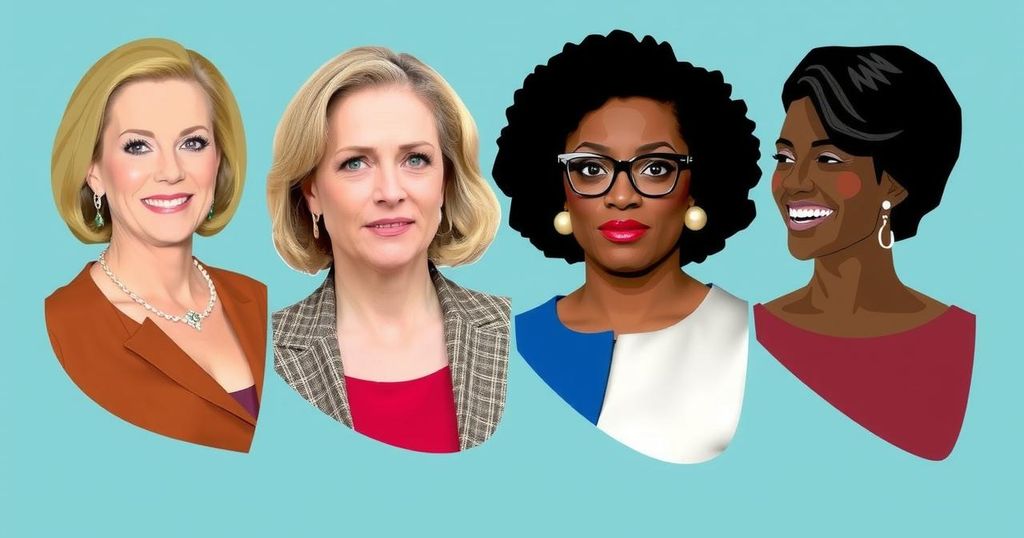The 2024 mega-election year saw a significant stagnation in women’s political representation, with many countries experiencing a decrease. Women now account for 27% of parliamentary seats globally, with many nations having fewer representatives. Despite gains in specific countries, the overall increase is negligible, raising concerns about systemic barriers and societal attitudes. The focus on gender quotas and addressing violence against women in politics is critical to encourage future participation.
In the aftermath of a significant mega-election year, the increase in female political representation has notably stagnated, with 2024 marking the slowest growth in two decades. Almost half of the global population participated in elections, yet women now represent a diminishing presence in multiple parliaments, including those of the United States, Portugal, and others. Specifically, twenty-seven new parliaments have fewer women than before, and women’s overall representation in parliaments globally has stalled at 27%. In stark contrast, countries like Mongolia and the Dominican Republic achieved positive strides, while Mexico and Namibia inaugurated their first female presidents. The current climate poses complexities, not merely reflective of election systems but also influenced by societal attitudes towards women in leadership roles.
The global landscape of female political representation has experienced significant fluctuations since the mid-1990s, where representation doubled by 2020. However, recent elections illustrate a critical regression with nearly two-thirds reporting reduced female participation. Several nations, particularly those without gender quotas, showcase glaring disparities, while regions like Latin America note advancements. Yet, systemic barriers including societal norms and financial hurdles continue to undermine women’s political ambitions. Additionally, rising violence and negative sentiment against women in politics further hinder progress toward gender parity in governance.
The findings from the recent mega-election year underscore the urgent need to address the stagnation of female representation in politics. Despite pockets of progress, the overall decline reflects deep-rooted challenges that persist in various democracies. Measures such as gender quotas and political commitment are essential to foster a more equitable political landscape. Without adequate support and structural changes to empower women in leadership, the road to parity will remain fraught with barriers. Encouragingly, acknowledging and addressing these challenges can catalyze change, potentially leading to more representative governance and improved decision-making outcomes.
Original Source: www.bbc.com






